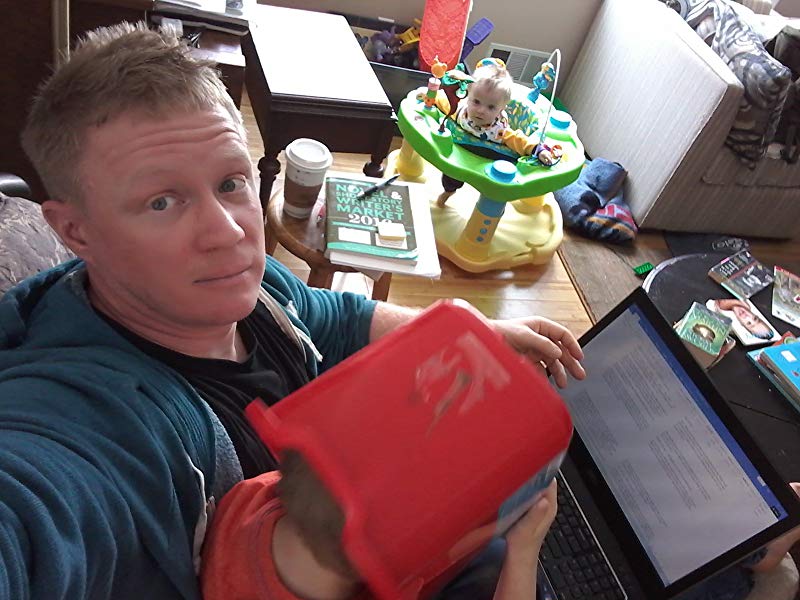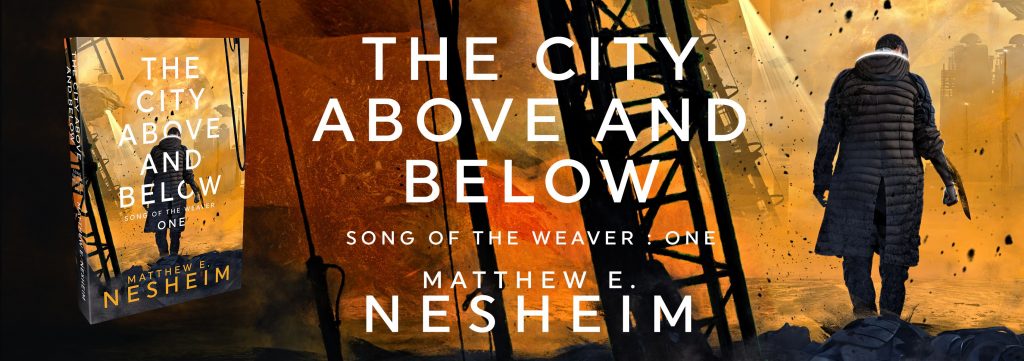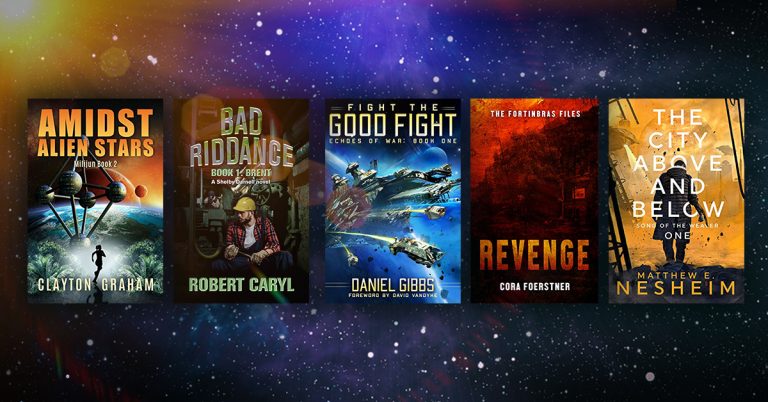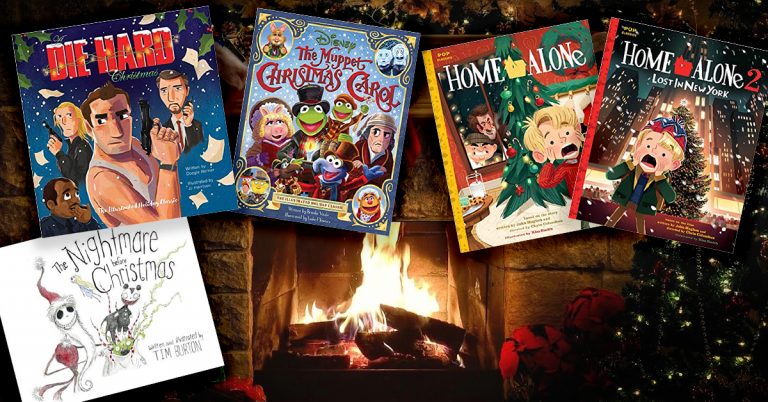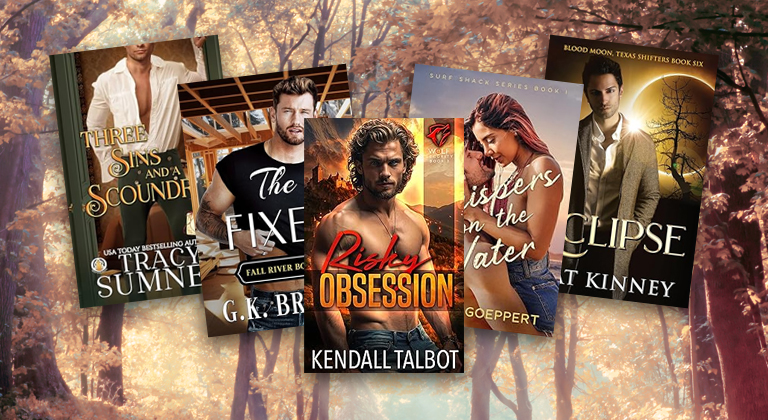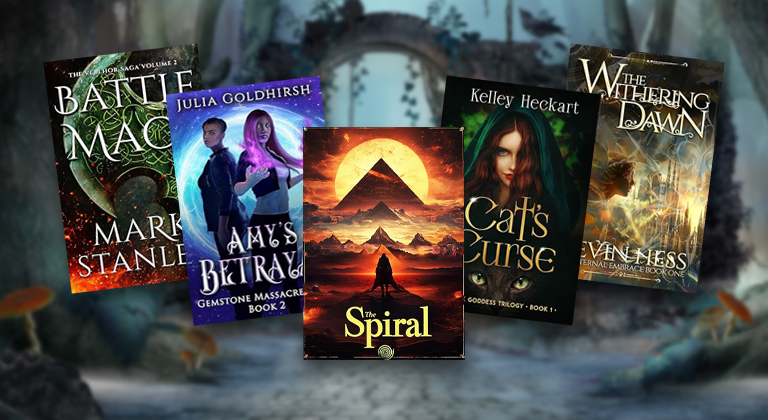Author Spotlight Interview: Matthew E. Nesheim
Today’s author interview is with Matthew E. Nesheim, author of The City Above and Below. The first in the Song of the Weaver series, Matthew’s writing has won the immediate attention of sci-fi fans, including David Bowen, of MAYDAY magazine, who compared Matthew’s work to that of Patrick Rothfuss, or Ronald D. Moore, the writer of Battlestar Galactica. We were excited to ask Matthew about his inspirations and motivations – and find out what he’s working on next.
HG: My first question is the most obvious. WHO ARE YOU? How you describe yourself to the world?
MN: I’ve wanted to be a professional writer since I was around 13 or 14 years old. I think just how some people (both men and women) believe they can be professional athletes at a young age, I think that’s what I believed with writing, so most of the things I’ve done in my adult life have been centered around becoming a better writer. In college, I studied journalism, but what I found out was that I really wasn’t a journalist. This led me to a few years in the infantry. Fortunately, I met my wife during that time and she pulled me back to civilian life.
However, what I had from my time in the Army was the beginnings of a story that I eventually turned into my first novel. The City Above and Below as a novel was written while I was pursuing my MBA. Then, after about 6 months of querying agents, I decided they were a dead end and so I self-published. I just felt that there were a lot of readers who were looking for what I wrote even though there didn’t seem to be any agents. So far, I’ve been proven very right in that assumption. I’ve sold just over 1,000 copies so far and I’m looking forward to selling many, many more.
HG: That’s BRILLIANT! I have to admit, I was attracted to your novel because it balanced your real military experiences with sci-fi, which to me is kind of like the litmus test of good science fiction. It has to be rooted in reality to be able to believe the unbelievable aspects, and I’m not the only person who thought that you translated real battlefield experience into the story REALLY well. What was the route to getting your book on Amazon? How long did it take to write?
MN: Wow, I’m glad you really enjoyed the book! As for the writing, I had a pretty good script to go off of when I started. You see, I had originally conceived the story as an online graphic novel when I was writing it during my time in Afghanistan. However, by 2014 I no longer felt like hiring an artist and running an online comic (most of the guys who do that are artists themselves) and so I started converting the whole thing into a novel. So, I think I started in the fall of 2014 and then finished in the spring of 2018. So, in total that’s about 3 ½ years. However, I’ll add that I also started and completed my Master’s degree during that time, so I’m hopeful that I can complete Book 2 much faster. I’m hoping to release Book 2 and possibly a prequel novel next year some time. The self-publishing aspect of it took me about 3 months. I think I decided to self-publish sometime in August or September of 2018 and then by early December, I released it. I’ll also add that after those 3 months, I took a very, very long nap and even then I was so tired that I didn’t tell anyone I’d published a book for almost a week.
HG: Hahaha, I love that! Okay, so what was the process like, writing the novel? Do you have a desk? Or are you a laptop-at-Starbucks kind of writer?
MN: I used to be exclusively a “write at Starbucks” guy. Probably because I’m an extrovert and I get a lot of energy from being around people. However, as I’ve gotten older and probably because I have 2 young boys, I’ve adapted to write at home a lot more.
As for creative process, I really enjoy revising. I think I revise a lot more than the average self-pub author. I see a lot on the message boards where self-pubs are putting 3-4 books out a year. I respect the hell out of that, but it’s just not my style. In order to do that, you’re really publishing your second or maybe your third draft. I’m a ‘revise until you think it’s perfect’ kind of guy.
HG: How do you balance writing and two boys, lol? I have three kids and it’s… challenging! I really respect where you’re coming from with that. I write romance and churned a hefty number of books, and then I just stopped and slowed down, because I figured I’d rather get them right.
MN: As for my boys, they’ve just gotten really good at entertaining themselves. Also, nap time and Youtube videos are the best things in the known universe, lol.
HG: Okay, so next question is: You said you kind of had a ‘script’ for The City Above and Below, but beyond that – are you a plotter or a pantster when it comes to writing? Will the next book in the series be planned out so extensively?
MN: I plot a lot of stuff out. It’s kind of a process of researching and plotting the initial outline, then writing the initial draft, then revising and re-writing until I think it’s as good as it can be. I’m really looking forward to writing some of the less military focused stuff for Book 2 (though there will still be plenty of military-style sci fi). I really want Fel’s and Delea’s story arcs to explore as much of the universe as possible and to include as much adventure and intrigue as I can pack in. That’s why I’ve been writing them first. While some of the other characters, like Taylor and Atticus, will get all of the explosions and the dog fights, just like everyone wants.
HG: I was actually really interested in the military aspect. Your real life experiences seemed to come across very vividly in your writing, and a lot of readers picked up on that. How do you feel about that? Was that deliberate, or was it just an organic part of your storytelling?
MN: Yeah, I would say that the military sci-fi stuff is very organic for me because of my 5+ years in the infantry. Ranks, jargon, how to run a flanking maneuver to counter a linear ambush, all of those things are a lot easier to describe accurately if you’ve done them.
All of the military characters I wrote: Atticus, Taylor, Ortho and everyone else around them are based on people I knew or, in some cases, still keep in touch with. I get a lot of positive feedback about Ortho because he’s so bitter and so funny and he’s surrounded by all of these infantrymen who kind of treat him like he’s some little kid they have to look after. Well, that’s kind of what it’s like when you’re an infantryman and you have to go on patrol with someone who is a non-combat specialty. You don’t know if they’re competent or not at all, and so usually you assume they’re an idiot until they prove otherwise. That’s something that most non-military – and even non-infantry – would have no idea about. It’s not totally unlike how they treat Upham in ‘Saving Private Ryan.’ I can remember so many times where this would be true during my time in the Army.
My second tour I was at Bagram Airforce Base in Afghanistan. Biggest base in the country. Tons of high ranking people there. Our job was to patrol the territory around Bagram, an area about the size of Rhode Island, and so we got a lot of requests from support personnel who wanted to come with us and see what the country was actually like. Of course, as a Sergeant, I had no say in who came with or what they were like and so usually, we’d show up for patrol and then my company C.O, Captain Wilson, would introduce me to some officer from some support shop who wanted me to be his tour guide. The positive is that they’d always go out on day patrol which was a lot safer. One of the best non-infantry guys that came with us was our Chaplain. Now, the funny thing about Chaplains is that they don’t have to leave the base. However, our Chaplain was so involved in making sure everyone in his unit knew that he cared about them, that he wanted to spend time with every grunt he could. This, of course, meant going out on patrol with us. Once he heard from me that night patrol was much more dangerous than day patrol, guess what he wanted to do? That’s right, night patrol. You want to know what’s even more crazy? Chaplains don’t carry weapons. So, here’s this dude walking around with us at zero-dark-thirty with nothing but a 2-inch pocket knife and to my COMPLETE surprise, he is EXACTLY where he is supposed to be at all times. I cannot tell you how rare that is for non-infantry.
Foot patrols are not totally unlike Football or Rugby plays. They are complex maneuvers where the point man (me) is sending back hand and arm signals in the dark and everyone behind me is moving and flowing to where I need them to be without saying a word. We never got into a gunfight with Captain Foley (the Chaplain) but he was always in the right spot and the guys loved him. He learned all the hand and arm signals and all the different maneuvers on the first night and went out with us at least a dozen times that year and we were always happy to have him. Those are the kinds of stories that maybe I have in my back pocket that others don’t. That’s maybe not the most exciting story, but that’s the one that comes to mind right now. If you want to hear about one of the crazy ones, I can talk about one of the nights where I almost died. Or if that’s enough, that’s cool too.
I have zero difficulty talking about my war experiences. So, if you want to know something, just ask.
HG: Oh WOW! You write that so fluently – there’s probably a book there in itself! I mean, I’d love to hear about that night – which is a weird thing to say, now I think about it. Lol! “Oh, yeah, I want to hear about how you nearly died.”
MN: Okay, so the first thing that I need to establish is that Infantrymen WANT to get shot at. It’s why they signed up. The second thing is that insurgents are typically young men who also want to get shot at or are willing to get shot at if they’re paid enough money. Honestly, a lot of the Global War on Terror is being fought because of two very important reasons: 1) There are not enough jobs for the young men in the Middle East. 2) Many Middle Eastern allow for polygamy which means the rich and powerful get all the women and the young men are left with blue balls and a lot of aggression.
Sorry, not sorry.
This leaves a massive unemployed talent pool for the terrorist cells to recruit from because most real terrorists don’t really want to fight, they want to get other people to fight for them. So, they pay young men to do this fighting.
Now, imagine for a moment your a young Afghan man wearing nothing but a robe and a headdress and you’ve agreed to ambush an American patrol with all their armor, night vision, and terrifying weaponry for about $200 and a pack of gum. You’re going to be pretty careful about how you do that.
Now imagine you’re a 19 year old from Texas, bored out of his mind and trying to figure out how to get Hassan to grow a pair and shoot at him so that he can do something exciting tonight. Welcome to the global war on terror.
So, in my neck of Afghanistan at that time (2009-10) the insurgents had developed a tactic that basically went like this: They would hide in the bushes (or behind a wall, etc) near the road and then they’d shoot off a series of rocket propelled grenades (RPGs) at the very last truck in the patrol, then – if they were brave – maybe follow up with some small arms fire, and then they’d scurry away in the dark before we could turn around and blow them to smithereens.
So, WE developed a tactic to bait them into doing this as much as possible while providing us with the maximum opportunity to blow them into said smithereens. It went like this: We had a 3 vehicle patrol where we would simply have the 3rd, rear truck hang back as far as possible from the rest of the patrol like they were falling behind because of mechanical problems. Then, when the insurgents began shooting at that rear truck, the other 2 vehicles would turn around and burn rubber to counter the ambush. As second in command of the patrol, I was the point man in the front truck and it was my job to lead the counter attack against any and all ambushes.
It is also important to note that we would listen to music while on patrol by wiring my iPod to the internal speakers of our MRAP (a bigger version of the Humvee).
So, fast forward to late October, 2009 and we’re driving down Route Alaska in the western part of our zone and we’re blaring AC/DC’s ‘Thunderstuck.’ It’s the opening of the song as they’re singing ‘Nah-nah-nah-nah-nah-nah-nah-naaaahhhhh’ over and over and just as they yell the first ‘Thunder!” that’s when the first RPG hits the rear vehicle in our patrol: BOOM!
I blame Angus Young for most of what happened next.
So about 3 or 4 more RPGs go flying past the rear truck as I rip off my headset, open my door (passenger door of my lead MRAP) and start yelling commands at my driver to back up so we can get a better angle to return fire. My gunner, who is shooting an automatic grenade launcher, manages to rip off about a half-dozen rounds in the general vicinity of our enemies. Unfortunately, our foes are curled up behind this broken wall that might have been a building at some point and this shields them from the daisy chain of explosions that hit the rice patty right in front of them. They decide that’s enough, ditch their RPGs and then run away to hide.
Then about 3 things happen all at once and I nearly loose my leg.
My poor driver is trying to back up a 15 ton vehicle, listen to me yelling directions at him, with AC/DC still blaring in his ears, with an automatic grenade launcher going off, and he doesn’t see the Armored Scout Vehicle (ASV) looming behind him. He probably can’t see the ASV coming because it’s on his passenger side, in his blind spot, where I’ve got my door open so that I can hang out the side of the truck and return fire while I’m shouting commands. My bad.
So, the ASV hits our MRAP almost exactly like the iceberg hit the Titanic, in a sideswipe that grinds up the side of the vehicle. My driver, Josh Garcia, likely saved my life because he slammed on the brakes just in time so that the front corner of the ASV ground to a halt just as it pressed up against my leg. Another foot and I would have been ripped off the MRAP and drug underneath the 12 ton ASV. So, death attempt #1.
I yell at my gunner, named Alex Quesenberry, and blame him for everything. In that moment, I wanted him to be directing the driver so that he didn’t hit the ASV. Well, I had told him to do that AND return fire and so with Bon Scott screaming ‘You’ve been … THUNDERSTUCK!’ in his ears, he decided – like any red blooded American male would – that shooting back was the priority.
So, on to death attempt #2.
We separate the two vehicles by simply driving forward while I scream at everyone. Then I jump out, run to the rear door of the truck and grab the anti-tank weapon (called the AT-4). This is basically a one use bazooka. I’m mad that I almost lost my leg and I know these jerks are hiding behind that wall, and so I take the AT-4, prep it, set it on my shoulder, and press the fire button. Nothing. Confused, I prep it again, set it on my shoulder again, and press the fire button, again. No dice.
Now I’m pissed because not only did my gunner almost get me killed, now my AT-4 won’t fire and I don’t get to blow things up like I always wanted. Then I realize what’s behind me. I had been standing with the rear of the AT-4 pointed directly at the side of the 15 ton MRAP behind me. Had the AT-4 not malfunctioned, it would have fired its rocket and the back-blast would have ripped my head off.
So, I failed in killing myself twice in about thirty seconds. Again, I blame Angus Young and the massive amount of adrenaline that was coursing through my brain.
The fight was mostly over at that point. The six insurgents ran back into a village, jumped a wall, and then hid in a rice patty where we found them lying down on sleeping mats next to a tent. We detained all of them (all that work and no one died, lol) and brought them back to Bagram where they were processed as detainees. We never found any weapons, likely because our enemies tossed them to someone else who then ran away and hid the weapons further in the village. That happened all the time. Two days later, the powers that be would decide we didn’t have enough evidence to jail these 6 dudes and so another patrol drove out and let them off like it was some catch and release thing.
The next day, I kind of came to my senses and apologized to my gunner for yelling at him and basically blaming him for my own screw up. Alex and Josh and I are still friends.
And so that’s my ‘Thunderstruck’ story. I still get chills whenever it comes on.
HG: So, what’s it like being back? Adjusting to civilian life?
MN: I got out in July, 2010. My wife Kate and I were newly married and we moved to Milwaukee, WI where she finished her PhD in creative and professional writing. My wife is actually an amazing writer herself, though she prefers more non-fiction focused stuff.
As far as adjusting goes, I was only ever in the Army for about 5 ½ years. I was never really a natural fit for the military culture and so becoming a civilian again really felt like taking off a suit that never really fit. I had always been more at home on the deployments, where the rules are looser, than I was in garrison.
Now, as an author, I always like to say that I’ve been a writer much longer than I was ever in the military. I’ve put far more work into learning the craft of writing and storytelling than I have at anything else in my life. Back in college, I used to watch movies and outline them scene by scene just to understand how they worked. I probably watched ‘Casablanca’ fifty times in one year, just because its structure is so perfect. I would also watch poorly constructed movies just to figure out what went wrong with them. I filled several notebooks with these notes. That was really the first time I started working on the ‘craft’ part of it.
So, the opportunity that we have as self-published authors these days is pretty much the dream for me. This is really what I’ve always wanted to do and I’m just super thrilled every day to wake up and write things that people might actually read. It’s very, very motivating.
HG: So how are you progressing with your planned books?
MN: Trying to work on it every day. I post word counts and updates to my Facebook page just about every week. I currently have a completed rough draft of Fel’s story thread and I’m neck deep in working on Delea’s right now. I have outlines and early drafts of first chapters for most of the other characters. I really don’t know how many books are going to be in this series, but I’m thinking at least five. I have an ending in mind, I just have to figure out how I’m going to get there. Waking up and exploring this universe every day is probably one of my favorite things that I’ve ever done.
HG: Do you find you work through any of your own issues while writing? I find it can be like therapy sometimes.
MN: Great question. I know that works for a lot of people, but writing really isn’t like that for me. I kinda wonder if that’s not more of an introvert thing? When I sit down to write, it really isn’t to share what I feel, it’s more that I’m 100% excited to entertain people. I think in another life I might have been a stand up comedian. I play a lot of Dungeons and Dragons (yes, even at 39) and 99% of the time I’m the Dungeon Master AND I’m the guy getting everyone together. D&D is really how I developed a lot of my storytelling chops and so whenever I write, I’m usually focused on the entertainment value of what I’m doing more than anything.
HG: What are some of the books, authors and media that influenced you? I saw you mentioned a few different influences including Hemingway.
MN: Growing up in North Dakota, I sought my escapism in authors like Timothy Zahn, Tad Williams, and Robin Hobb. As I grew older, I became drawn to more literary writers like Hemingway, Plath, and Vonnegut. Becoming a novelist was my dream and I imagined a future where I would write books with the adventure of Zahn, Williams, and Hobb, but with the literary appeal of Hemingway, Plath, or Vonnegut.
HG: So, where can readers who’ve had their appetites whet find out more about your writing?
MN: They can follow my Twitter account, I’m on Facebook, and of course my author page on Amazon.
Thanks so much to Matthew for sitting down and chatting with us – and, remember, if you liked the sound of The City Above and Below, remember that subscribers to Hidden Gems got to read it first, for FREE – plus books from any of over 15 genres; delivered to their inbox each and every day.


